The Community Impact Projects (CIPs) that every Colorado Academy Senior completes are more than just one of the items on the list of requirements they must fulfill in order to graduate. Often, they are the culmination of a multi-year commitment to making a difference far beyond campus, and reflect not only CA students’ engagement with their communities, but also their growing understanding of their place in the world.
According to Lisa Dean, Enrollment & Financial Aid Manager and Upper School Service Learning Coordinator, “We hope CIPs give students a way to see that their actions truly do affect those around them, and that they can choose meaningful ways to engage with others.” Flowing directly from CA’s mission to create curious, kind, courageous, and adventurous learners and leaders, “CIPs instill a lifelong sense of connection, service, and learning through community,” says Dean.
Indeed, the Seniors’ own CIP self-reflection videos, which they produce as part of their graduation requirement, clearly reveal the impact these projects have on their lives, as well as on the lives of those they serve.
Zoe Cope: We All Rise – Changing Laws, One Story at a Time
For Zoe Cope, the CIP was a chance to elevate a longstanding passion for gender equality to a new level of commitment. From her Junior to her Senior years, Cope worked as an intern with We All Rise, a UN partner organization dedicated to improving the rights of women. She produced content for We All Rise social media channels by researching, writing, and creating infographics to spread awareness about important gender equality issues and spotlight women who are making a difference in the world.
“Throughout this work,” says Cope, “I hoped to educate the world that gender equality is not only a fundamental human right, but also essential to achieving a peaceful, prosperous, and sustainable world.”
Cope’s charge in the social media posts she authored was to support the UN’s efforts to encourage countries to change laws and policies to benefit women and decrease poverty levels. She created content about Zarifa Ghafari, a UN Geneva Summit 2022 Women’s Rights Award Recipient and the youngest female mayor to serve Afghanistan; Gloria Steinem, who spoke to protect the rights of women as Roe v. Wade faced reversal; women making strides in the world of cryptocurrency, a field dominated by men; and Tanzila Khan, the winner of the Amal Clooney Women’s Empowerment Award for advocating for disability and women’s rights.
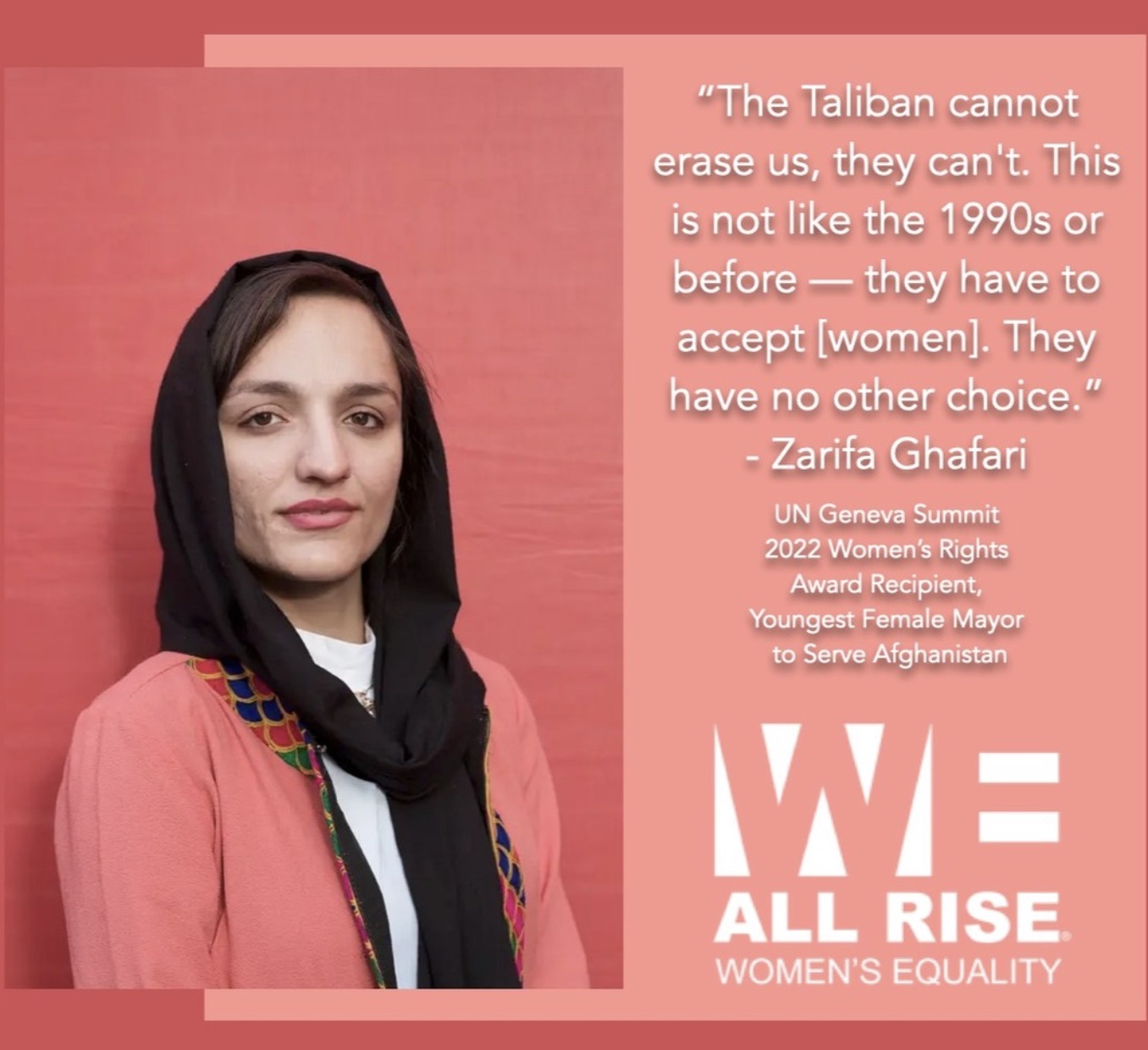
The posts reached thousands of viewers, and Cope says, “This project has taught me that I love doing work that makes a difference for those around me.”
Ezra Goldstein: Arapahoe Rescue Patrol
Ezra Goldstein first heard about the Arapahoe Rescue Patrol (ARP) from his parents when he was a Sophomore, and it immediately captured his interest given his love of the outdoors. The mission of the entirely teen-staffed search-and-rescue organization is to find missing persons, give them aid if needed, and bring them to safety.
“It was the perfect way to expand my outdoor safety knowledge as well as help other people and contribute to the community in a hands-on and impactful way,” Goldstein says.
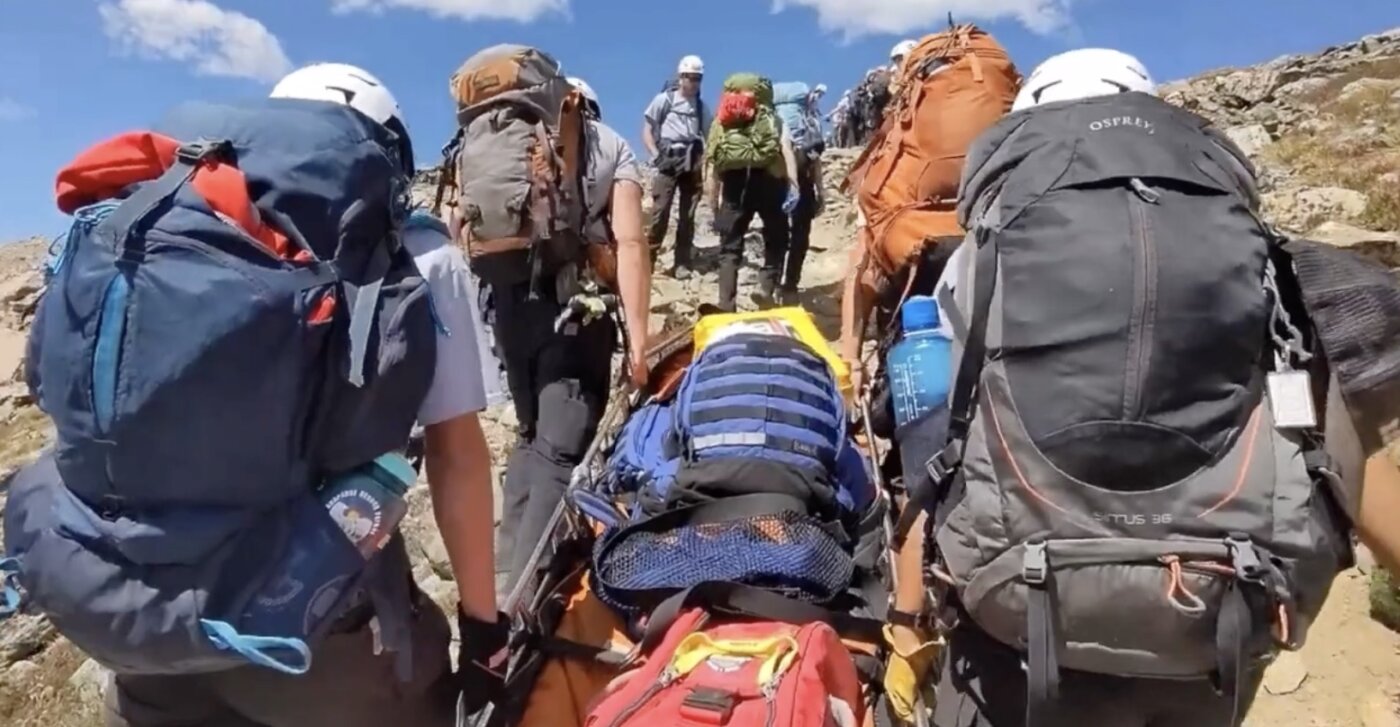
Goldstein’s CIP began all the way back in spring 2021, when he first enrolled in ARP’s rigorous training program, which requires recruits to complete more than 100 hours of training, including 24 in-classroom hours as well as two 48-hour weekend sessions in field search-and-rescue skills. This is followed by a six-month probationary period where additional training is made available in emergency care, wilderness survival, map-and-compass skills, technical rock rescue, radio communications, field evacuation, mass casualty training, evidence searching, winter operations, aircraft crash rescue, and much more.
By winter, he was qualified to participate in real search-and-rescue calls, and he joined with local law enforcement on several missions to locate missing persons. In one winter search near Evergreen, Goldstein and his fellow rescuers trudged for hours, scouring every nook and cranny of a mountainous area in knee-deep snow, and were able to find evidence of the victim they were searching for.
Goldstein reflects, “After being a volunteer with ARP for about a year and a half, I felt extremely fulfilled and impacted. I learned so much about public and emergency services, and also how to work fluidly with a team. Teamwork is one of the most important aspects in search and rescue, and it was vital that every member trusted each other in emergency situations.”
Olivia Harris: Civil Air Patrol
Olivia Harris has long pursued the goal of becoming an officer in the U.S. military. Serving in the Civil Air Patrol throughout high school, the experience she documented for her CIP brought her much closer to achieving that aim.
The Civil Air Patrol (CAP) is the official civilian auxiliary of the United States Air Force; CAP’s more than 50,000 volunteers serve America’s communities, save lives through search and rescue efforts, and shape futures by supporting STEM education programs.
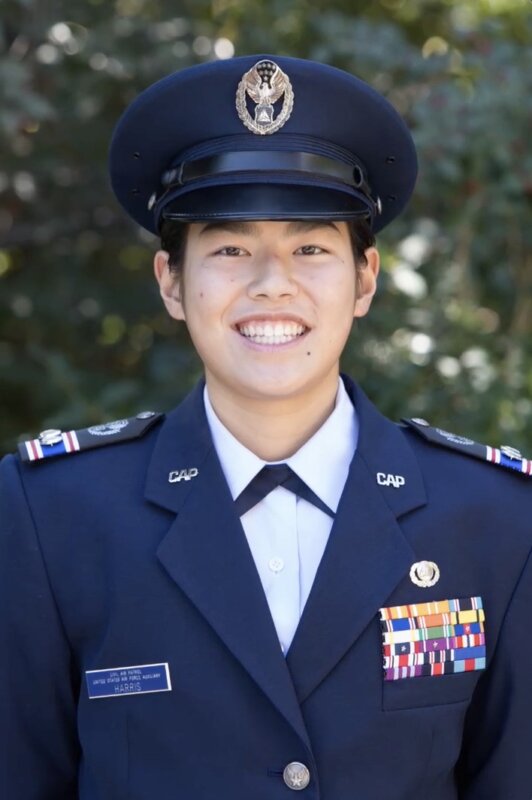
As a CAP cadet, Harris earned her qualification to participate in search-and-rescue missions, volunteered at air shows and other events, and served as a uniformed member of color guards at government ceremonies, Colorado Rockies games, and military funerals. Most importantly, she learned about “servant leadership,” a concept that calls on leaders to share power, put the needs of their followers first, and help people develop and perform as highly as possible.
“I expected to learn a lot about myself and to further develop my ability to lead others when I joined this program,” Harris says. “But I didn’t expect to learn so much about serving others by connecting with them, listening, and taking in different perspectives. As someone who wants to lead a life of service, Civil Air Patrol has instilled in me even more excitement and dedication to giving back to my community.”
Joe MacDougall: We Don’t Waste
Like Harris’s, Joe MacDougall’s CIP was also years in the making. Since the Ninth Grade, he’s volunteered with We Don’t Waste, a nonprofit that works to recover food that is deemed imperfect and distribute it to recipients in the Denver Metro Area.
The pandemic brought increased demand for the organization’s services, and throughout his time with We Don’t Waste, MacDougall has found himself doing everything from working as a Spanish translator at food distribution events to developing social media and brand strategy, and even cold-calling donors during annual fundraising events.
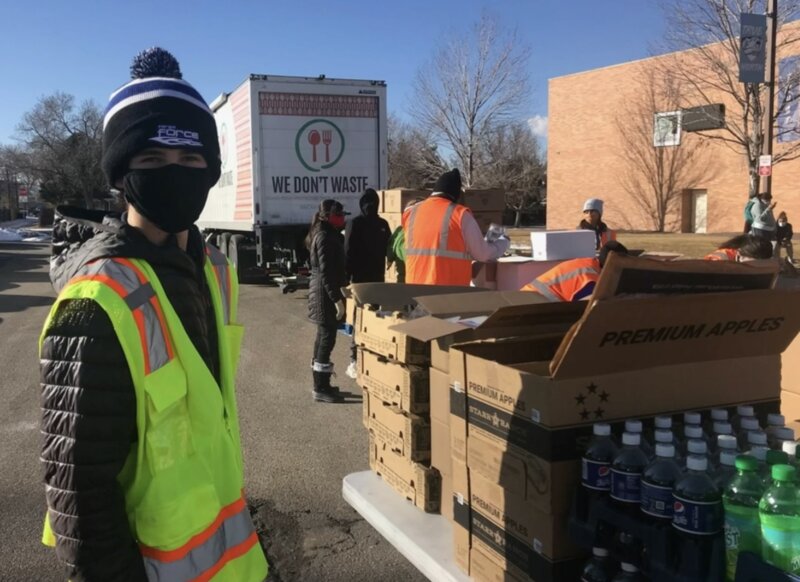
During his Senior year, MacDougall took charge of a QR code-based outreach campaign designed not only to offer food education awareness but also to gauge where the need for We Don’t Waste’s services is greatest. He’s been busy developing posters and food education resources, as well as handing them out on the organization’s behalf.
“I hope that this campaign will target the prevention of food waste and address waste prior to recovery efforts,” MacDougall says. “Over the years my involvement with this organization has become an integrated part of my life, and I hope to work with them again over the coming summer.”
Kai Wang: Aurora Teen Court – Law and Order
Every Wednesday since his Sophomore year, Kai Wang has traveled to the Aurora Municipal Court building to serve as a student attorney with Aurora Teen Court, an alternative system for first-time, misdemeanor juvenile offenders, in which teens determine the appropriate sanctions for the offender.
Wang first became involved in Teen Court after participating in CA’s Mock Trial program. “I wanted a way to continue my interest in law, learning not just about the details of court etiquette and trial procedure, but also how law can actually be applied to real life to help people,” he says.
In a typical case, Kai and three fellow student attorneys meet with offenders and their families, questioning them about the crime, their plans for the future, their responsibilities at home, and their day-to-day lives. The student attorneys then decide on sentencing, which can range from community service hours to classes and apology letters. This “restorative justice” approach offers a positive alternative to traditional punishments by allowing offenders to repair the harm they may have caused.
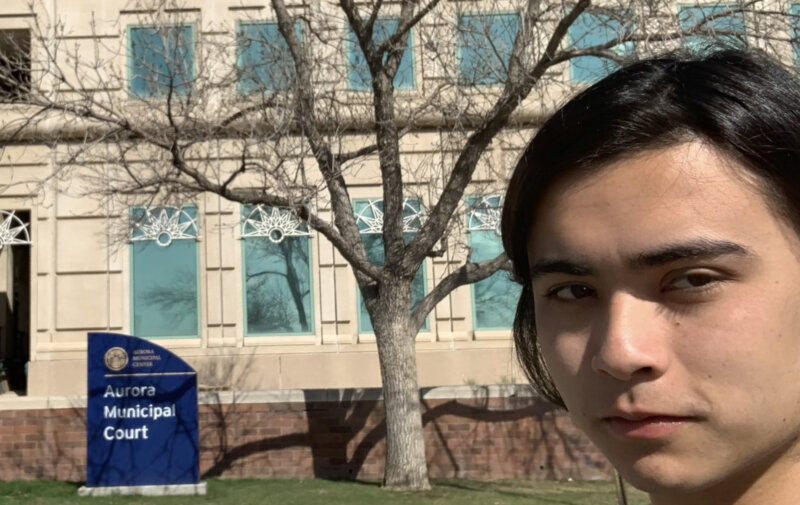
Having sentenced about 45 teens since the start of his Senior year, Wang says the model is more understandable and effective for young offenders. “For some teens who may already own up to their mistake, Teen Court can be a point for them to bounce back into their community in a positive way. For others, hearing their parents or other young people talk about their actions, having an emotional reaction, and then experiencing something new through a sentence like community service—Teen Court can be incredibly transformative.”
Ana Yáñez, Horizons Colorado Tutoring Program
Ana Yáñez began tutoring with Horizons Colorado during her Junior year, and since then, she says she’s “never looked back.”
Based at CA, Horizons seeks to advance educational equity by building long-term partnerships with Colorado students, their families, and communities to cultivate the joy of learning while closing opportunity gaps. High school tutors with the program, many of them hailing from CA, meet regularly with elementary-aged students to support their academic growth and achievement.
During her Senior year, Yáñez worked closely with Kamila, a Knapp Elementary third grader. Silly, hardworking, and loving, Kamila would write Yáñez a special note in Spanish or English on a whiteboard each week, and Yáñez, who attended a public school much like Knapp through eighth grade, explains that Kamila reminded her of herself.
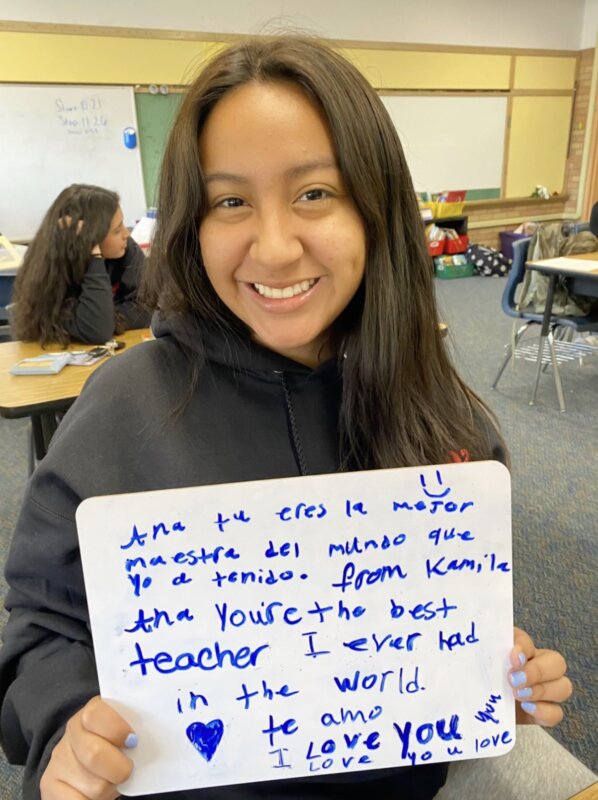
“I was the one tutoring Kamila,” she says, “but I feel as if the impact we had on each other is greater than I could have imagined. While not always as eager to do her math homework as she was to play Simon Says, Kamila helped me unlock different sides of myself. She taught me more about responsibility and hard work.”
“More importantly,” Yáñez adds, “she taught me how to be a kid again. When else in my day did I have time to shake out my wiggles and just laugh about having a staring contest? Especially with the stress of Senior year, Kamila helped me to take a step back and appreciate the simple things, and I could not be more grateful to her.”
